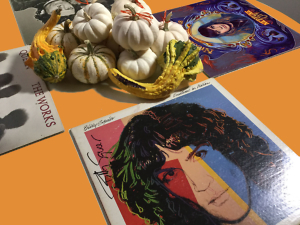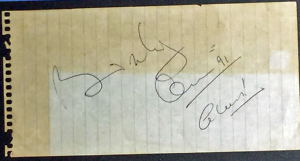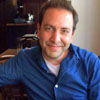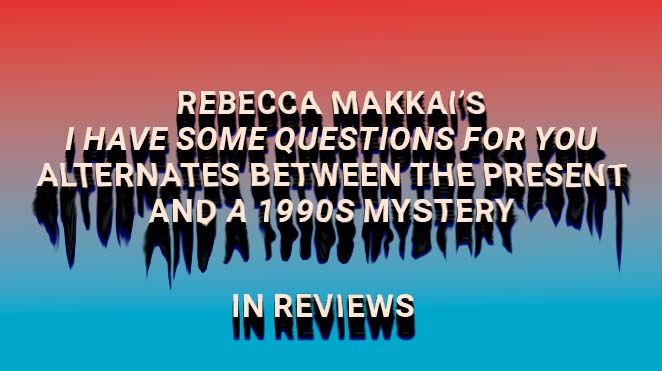The night singer-songwriter James Maddock performed at the 2014 Americana Music Festival, there were only a handful of people in the audience, including me, my wife, and James’s manager. It was a great show, but I sat heartbroken. For two years, I’d campaigned to get him that gig, and he was the perfect fit—winner of an Americana music award in New York City, crafter of outstanding songs in the American roots-music tradition, and former frontman for a well-regarded acoustic rock band. He had a decent following but had yet to reach mainstream Americana fans.

James deserved a bigger audience than the tiny turnout he got in Nashville, and I’d worked hard to spread the word. In fact, I felt I owed it to him. He had helped me years earlier, even if he didn’t know it. His solo debut, Sunrise on Avenue C, got me through a difficult time. I was newly separated from my first wife when I discovered the single “When The Sun’s Out,” which brought me joy every time I heard it. It kept me putting one foot in front of the other. What’s so beautiful about the song, and all the songs on that record, is the tinge of sadness running throughout, a sense that life can be dispiriting but still we keep moving.
My desire to help James pack a Nashville nightclub was yet another in another long line of failed attempts to find some appropriate way to thank artists for the music that has been so important to me. The impulse goes back to my teen years, when I approached singer-songwriter John Gorka after his set in the gymnasium of a suburban New Jersey high school. He was standing behind a table on the side of the stage.
“Hi,” I said. “I’m Joe Pagetta. I really loved Temporary Road and used to listen to it all the time when I was living in Belleville and taking the bus into Newark and hopping on the light rail into Penn Station to catch the Path train into Jersey City to walk to college and it was a really strange time because my parents had gotten divorced and I wasn’t sure where I was living but I had been in a rock band and read about you in Acoustic Guitar and now I’m playing more acoustically and writing songs myself and your record really inspired me and brought me great comfort.”
I’m sure I kept rattling on, but I don’t recall the rest of the monologue. All I remember is Gorka’s response: “The CDs are $12.”
I tried again with rocker Billy Squier after a record-store performance. I had a vinyl copy of Emotions in Motion in my hand. I said something about how much I loved the record, that it was cool that Freddie Mercury sang on it, that I knew the guy who ran his current label…. I hardly paused to breathe.
“What’s your name?” Squier asked.
“Joe,” I said.
“Is that who you want the record signed to?”
“Um, no. Just your name is fine.”
And Brian May, guitarist for my favorite band, Queen, once shushed me inside a New York City jazz club, where he was waiting to play with the legendary Les Paul. I approached him quietly at the bar: “Excuse me, Brian, I’m a big fan and I just want to thank you….”
“Les Paul is playing,” he interrupted before I could get truly wound up. “Have some respect.”
And then there was the time I met Bruce Springsteen and invited him over for eggplant. It was exactly as ridiculous as it sounds.

By now it should be clear that an artist’s need to be thanked by a fan is in no way commensurate with my own need to thank every single one of them, but still I persist. Nicole Atkins is an extraordinary, big-voiced singer from New Jersey who recently relocated to Nashville. Her 2007 album, Neptune City, really spoke to me. It was released while my father was undergoing treatment in New Jersey for lung cancer. Driving back and forth between the hospital in Red Bank and my sister’s home in Hazlet, I would listen to the record. My father didn’t survive long, but I kept listening to the record, especially the title song, which made me feel like I was watching Wim Wender’s Wings of Desire. That maybe my father was now one of those angels looking over the city.
About a year after my father died, I caught Nicole’s show at the Bowery Ballroom in New York City. When she played “Neptune City,” she asked everyone in the audience to sit down. We all did. As she sang the final chorus, she asked us all to stand up, and we did that too. The moment was transcendent. The weight of sadness lifted. With that one song, she had comforted, and now she was giving me permission to carry on. After the show, I didn’t walk up Bowery to the apartment where I was staying on Great Jones. I floated.
Nicole and I have become friendly since her move to Nashville, bonding over music and pizza and New Jersey. And thanks to geography, I’ve finally gotten a chance to thank a beloved musician under circumstances far different from the awkwardness of post-show signing lines—and, for the first time, to discover that artists feel the same way about their own heroes. “When I met Patti Smith and told her how much her music meant to me, that was just for her to know,” Nicole said. “Nothing more or less. Just two people sharing gratitude.”
It reminded me of the story Springsteen tells in his new autobiography, Born to Run, about playing a song for Bob Dylan when Dylan was recognized at the Kennedy Center Honors. In a back stairwell where they were both alone, Bob thanked Bruce for being there and said, “If there’s anything I can ever do for you.” Bruce thought to himself, “Are you kidding me?” and answered, “It’s already been done.”
 Copyright (c) 2016 by Joe Pagetta. All rights reserved. Pagetta is a director at a Nashville nonprofit, a writer, and a cycling enthusiast. He lives in the Donelson area of Nashville with his wife and twin daughters.
Copyright (c) 2016 by Joe Pagetta. All rights reserved. Pagetta is a director at a Nashville nonprofit, a writer, and a cycling enthusiast. He lives in the Donelson area of Nashville with his wife and twin daughters.





